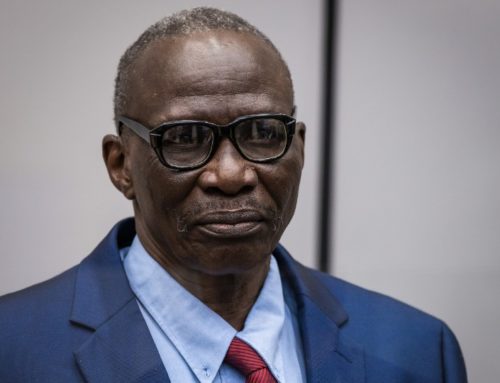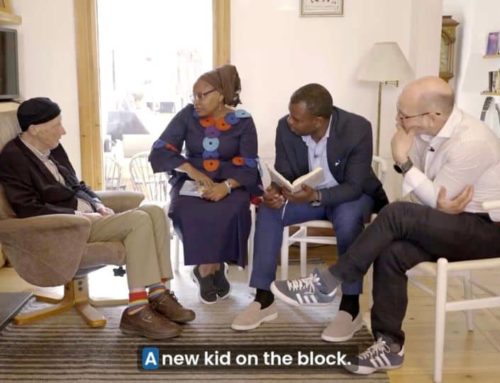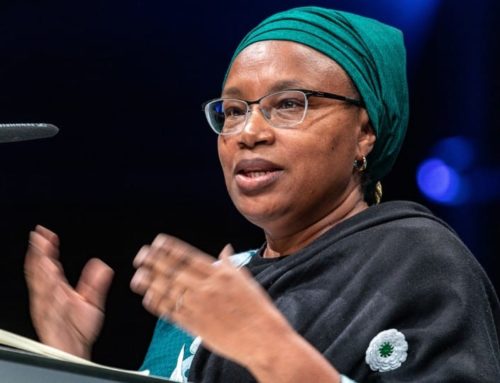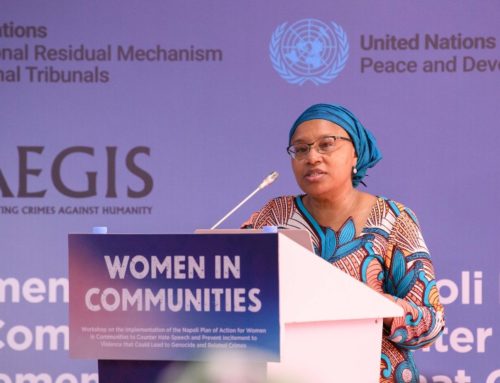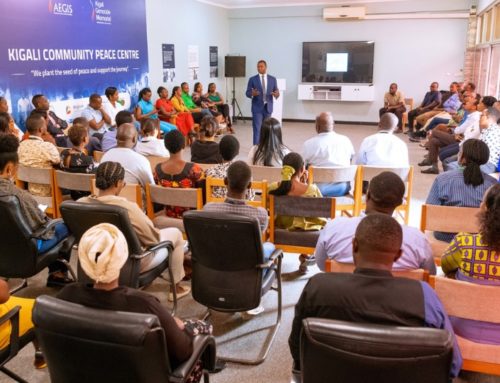Parliamentarians, diplomats, academics and genocide survivors gathered in Westminster Hall last week to mark 125 years since the birth of Raphael Lemkin – the Polish-Jewish jurist whose single-minded advocacy gave the world both the word genocide and the 1948 UN Convention on its prevention and punishment.
Hosted jointly on November 4th by the All-Party Parliamentary Groups (APPGs) for Armenia and for Genocide Prevention, and organised by the Aegis Trust with the Armenian National Committee UK, the event “Raphael Lemkin: A Pioneer of International Justice” explored the enduring power of Lemkin’s ideas and the urgent relevance of his legacy today.
“A crime unpunished is a crime repeated”
Opening the proceedings, Brendan O’Hara MP, co-chair of the APPG for Genocide Prevention, reminded the audience why Lemkin’s work still matters.
“The crime of genocide is being repeated time and time again,” he said. “Denial of genocide, and the willingness of people and governments to look the other way, is all too common. I’m reminded of Lemkin’s words that a crime unpunished is a crime repeated, and indeed, that is as relevant today as when he said those words.”
A short film produced by ANC UK traced Lemkin’s life from the shock of the Armenian Genocide through to his campaign for the Genocide Convention, the legal yardstick by which subsequent atrocities – from the Holocaust to Rwanda and Bosnia – continue to be measured.
Philippe Sands KC: Lemkin’s ideas and the hope of law
Delivering the keynote, Professor Philippe Sands KC – international lawyer, author of East West Street and The Ratline – traced Raphael Lemkin’s extraordinary personal and intellectual journey.
From discovering that both Lemkin and fellow legal pioneer Hersch Lauterpacht had studied at Lviv, to conversations with Lemkin’s surviving friends and research assistant, Sands painted a portrait of brilliance, obsession, and humanity: a man who is “testament to the power of ideas, that ideas really do matter.”
He reminded listeners that before 1945, international law placed no limits on how a state could treat its own citizens – and that Lemkin’s genius lay in transforming moral outrage into legal principle.
“The invention of his word has not stopped the horrors,” Sands reflected, “but it has given us hope. A piece of paper that says you can’t treat people in this way is not nothing … it is a means of holding people accountable.”
Sands cautioned that decades of legal interpretation have made genocide harder to prove. For Lemkin, he noted, it was “not a numbers game,” nor “about proving this special type of intention,” but a recurring crime demanding recognition and action. “One of the things that I’m working towards, in the spirit of Lemkin,” he said, “is bringing the definition and the application of the Convention back to what he originally wanted.”
Origins and Impunity
The first panel examined the roots of Lemkin’s thinking and the continuing challenge of impunity.
Dr Suzan Meryem Rosita Kalayci (University of Oxford) spoke of the silence that follows mass violence and of the difficulty of “writing non-violently about violence.” She linked Lemkin’s early insights to the British government’s 1916 Blue Book documenting the Armenian Genocide – urging renewed recognition of that event in the UK.
Joining online from the United States, Professor Henry Theriault reflected on how Lemkin’s study of Armenia shaped his concept of genocide as a process destroying culture, ethics and community as well as life itself. Impunity, he warned, remains a catalyst for repetition – from Sudan to Artsakh. Because “there hasn’t been transitional justice,” he said, “we see this occurring again.”
Witnessing genocide – testimony and truth
In the second session, Dr Zoë Norridge (King’s College London) explored how survivor voices continue Lemkin’s mission. Drawing on her work in 100 Days, 100 Stories: Rwandan Voices on the 1994 Genocide against the Tutsi, she described the courage of survivors who rebel against the idea that mass killing is normal and “devote their life to campaigning for change, even when that work comes at great personal cost.”
Rwandan survivor Alphonsine Kabagabo, former Director of Women for Refugee Women, then gave deeply personal testimony of her own survival and her continuing fight for prevention: “We talk a lot about genocide but what is the point if it continues to happen in front of our eyes?” she asked.
Dr Rebecca Jinks (Royal Holloway, University of London) and Professor Eric Gordy (UCL) followed with reflections on gendered captivity and denial. Jinks highlighted that in both the Armenian and Yazidi genocides, captivity “is not a by-product or a secondary method of genocide … it is in fact central,” revealing how the destruction of communities often extends into the most intimate aspects of survivors’ lives. Gordy observed that “the interests of truth and justice are very often not in harmony with those of powerful states,” and praised those documenting present-day atrocities, often at personal risk.
Living testimony and lessons learned
The final panel brought together Dr Agnes Kaposi, Holocaust survivor and engineer, and Alice Wairimu Nderitu, Global President of the Aegis Trust’s Isōko Centre for Humanity, former United Nations Special Advisor on the Prevention of Genocide.
Dr Kaposi, who survived Nazi occupation and slave labour as a child, distilled a lifetime’s learning into seven lessons – from “taking responsibility for others gives you strength” to “intercultural collaboration is the antidote”. Education, she argued, must move beyond remembrance to equip new generations to recognise and counter the processes that lead to genocide.
Ms Nderitu reflected on Lemkin’s legacy from the vantage point of the UN office that now bears his mission. She described the political realities of prevention – from resistance within the UN to letters of protest she received merely for speaking at an Armenian commemoration – and the silence that still surrounds Lemkin’s name in UN corridors. “Lemkin did not feature anywhere in the UN,” she said. “It’s as if he never existed. So I began a campaign for the United Nations to understand who Raphael Lemkin was and what he did.”
She closed with a challenge to all present: “If Raphael Lemkin was alive today, what would he have done that we wish to do, that we should do, and therefore we will do it.”
Continuing Lemkin’s mission
Closing the event, Jessica Morden MP, Chair of the APPG for Armenia, thanked the speakers for their “really thought-provoking” contributions, adding that the group “will continue to raise these issues for Armenia.” Brendan O’Hara MP pledged that parliamentarians would remain “a thorn in the side of the powerful who can – but who choose not to – live up to the promises they made to humanity.”
Law, memory and moral courage must work together to prevent genocide. More than 75 years after the Convention Lemkin inspired, his warnings still echo today— and, as Alice Nderitu reminded Parliamentarians: there are still people who know that they will be killed, but they do not know who to tell.

